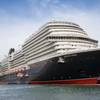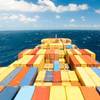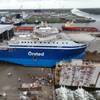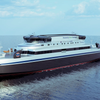Indonesia Still a Problem for Bulk Carriers Loading Coal
(Source: UK P&I Club Press Release)
Self-heating incidents involving coal cargoes have been problematic for centuries. It was a much-feared hazard in the days of wooden sailing ships, and has continued on since the advent of modern steamships.
The problems associated with carrying coal by sea are today much better understood, says Karl Lumbers, a Director of Thomas Miller P&I Ltd, Managers of the UK P&I Club: “When coal cargo oxidizes, it spontaneously generates heat and toxic gases such as carbon monoxide. This can lead to flammable atmospheres in the hold, depletion of oxygen in those spaces and corrosion of metal structures. Lower quality coals such as lignite are more prone to this process than higher quality coals such as anthracite. Understanding the quality of coal being shipped and how to monitor it is fundamental to reducing the risk of self-heating, and possibly the outbreak of fire.”
The UK Club believes one country whose coal exports present a real threat to ships and seafarers is Indonesia and it further notes that incidents have become increasingly frequent in recent years. It has therefore published a simple checklist entitled How to monitor coal cargoes from Indonesia. This is being distributed to all Members of the UK Club and can be downloaded in .pdf format from its website - www.ukpandi.com.
The problem is primarily related to the nature of the coals, and may be exacerbated by the way they are handled prior to and during loading.
Coal shipped from Indonesia is likely to contain a significant proportion of lower-rank coals in the sub-bituminous and lignite (brown coal) categories. In general terms, lower rank coals are more susceptible to self- heating than the high rank coals.
Brown coals tend to release more carbon monoxide into the sealed cargo holds than bituminous coals and anthracite. It should be noted that lignite is listed separately in the cargo schedules under the Bulk Cargo Shipping Name (BCSN) system as “BROWN COAL BRIQUETTES”, which are manufactured by compressing dried brown coal particles into blocks.
The UK Club stresses that shippers’ descriptions of the cargo, eg “steam non-coking coal in bulk”, may not reflect the nature and properties of the coal being presented for shipment.
Detailed recommendations for the safe carriage of coal are contained in Appendix 1 of the International Maritime Solid Bulk Cargoes (IMSBC) Code, which became mandatory worldwide on 1 January 2011 and which should be familiar reading for all deck officers serving on bulk carriers and other types of ship that carry bulk cargoes, even if only occasionally.
The new UK Club checklist is intended not as a substitute for reading the full IMSBC Code – it has after all been designed to fit in a pocket - but as an ‘aide memoire’ for the guidance of shippers, shipowners, charterers, surveyors, ships’ crews and other parties involved in the loading and carriage of cargoes of coal. Its main focus is the potential hazard of self heating.
The schedule in Appendix 1 of the Code refers to the BCSN “COAL (bituminous and anthracite)”. As material hazardous in bulk (MHB) it is placed in Group B (and A). Group B cargoes possess a chemical hazard; coal may create flammable atmospheres, may heat spontaneously, may deplete the oxygen concentration and may corrode metal structures. When the cargo oxidises (generating heat) it releases the toxic gas carbon monoxide. It follows that extreme care should be taken at all times if crew members are required to inspect the cargo while at sea.
Group A cargoes are defined as those which may liquefy if shipped at moisture contents in excess of their transportable moisture limit (TML). This can in extreme cases cause a ship to capsize with very little advance warning.
Indonesian coals are likely to have high moisture content, e.g. 30 to 40 per cent. It is a country where humidity levels are usually high and where rainfall can be intense. Furthermore, it is common practice to transport coal to the load port in open barges. Thus stability issues may arise as well as the risk of self-heating.










